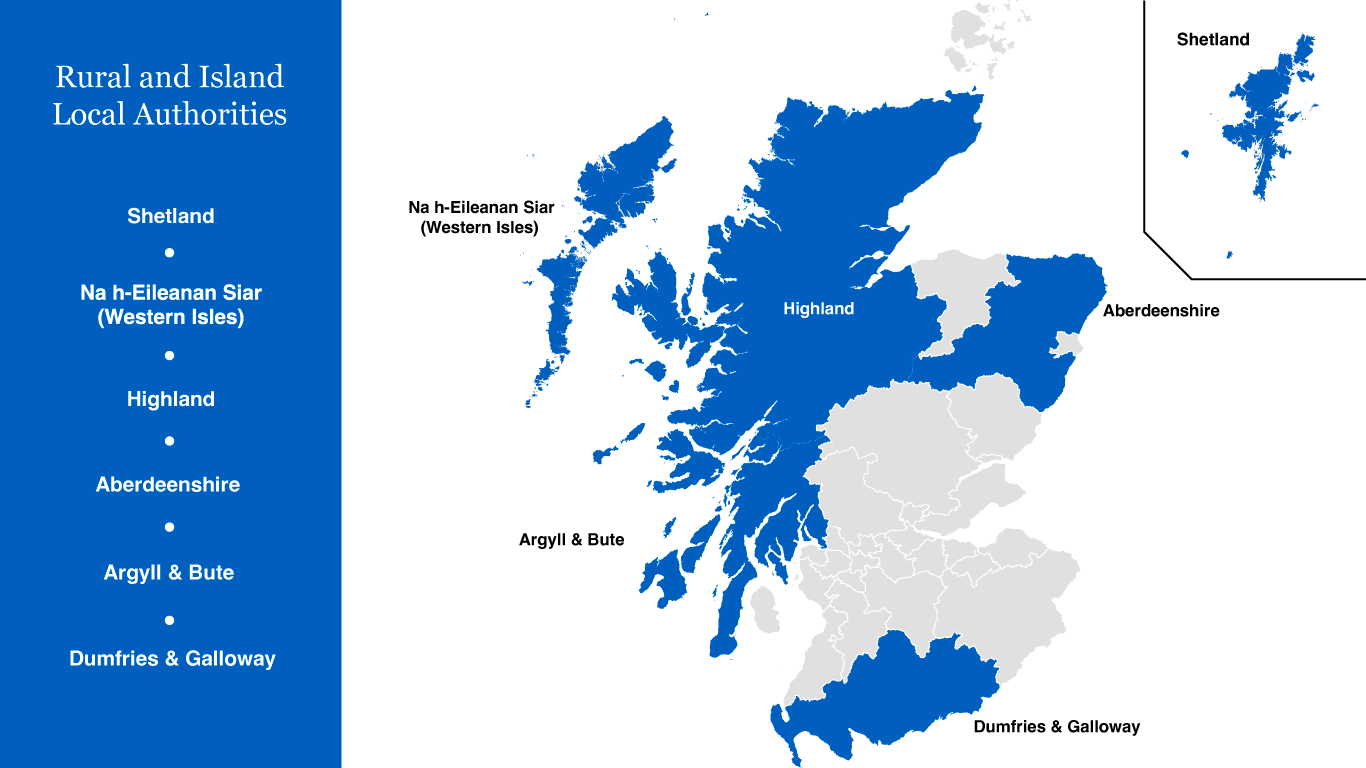The opportunity
The Scottish Government commissioned our team to undertake a research study focused on rural and island areas in Scotland to uncover the challenges of accessing and providing consistent and affordable school age childcare.
The results
We used multiple research methods to help understand the localised and widespread challenges of consistent and affordable wraparound childcare in rural and island areas and produced a report that provided recommendations to address these challenges and ensure adequate future support.
Project Context
The 2021 ‘Programme for Government’ underlines the Scottish Government’s commitment to support every child born in Scotland to reach their full potential. To achieve this, integral expansions in childcare and educational opportunities are needed.
In addition to these childcare-centred policies and economic strategy, the Scottish Government is committed to reducing the gap between male and female full-time hourly earnings.
Supporting sustainable changes
To make these changes sustainable, and support families, the Scottish Government commissioned our team to undertake mixed method research to understand the needs of parents and providers. The study focused on provision and demand of school age childcare between 4 – 14 years in rural and island areas in Scotland, where access to childcare and activities was suspected to be reduced by limited transport, lack of employment opportunities, and other factors.
Investigating school-aged childcare provision
We were tasked to research school aged childcare provision and reach out to care providers, parents and third sector. These groups would be able to tell us about their experiences and the challenges they faced. Our intention was to understand how childcare takes place in these areas and identify the key issues to be addressed.
Our research explored:
- existing models of childcare in rural and island areas
- challenges parents face accessing childcare
- challenges providers face delivering childcare
- case studies and areas of opportunity
Our research approach
We completed extensive desk research to assess existing data and conducted in-depth interviews with subject matter experts across the Childcare and Education sector. This research was used to create a survey which was completed by over 800 parents, and 72 care providers across six rural and island local authorities.
Using the results of the survey to help shape our discussion guides, we conducted one-to-one interviews with 12 parents and 15 care providers. Our aim was to discuss their personal and professional arrangements more deeply to identify and understand the similarities and differences across the different regions. We then complemented our analysis by using system mapping tools.

A parents perspective
The research discovered that lack of flexibility, availability and the absence of wraparound childcare were really limited and impacted on the working parent’s ability to find suitable work. The cost of childcare, limited transport options and insufficient options for children with additional support needs were also limiting families. Many end up relying on informal childcare.
Other contributing factors that compounded the above findings were the absence of childcare during school holidays.
Image on left: a map of Scotland highlighting the six rural and island local authorities the project research was undertaken within.
Childcare providers challenges
Childcare providers shared that they struggle with inconsistent demand which makes it difficult to run their settings efficiently – this was an issue consistent with rural areas. The majority also said they have experienced a lack of suitable funding and a decline in support. Most reported it was difficult to train staff to the level they need to be to comply with Care Inspectorate standards whilst still offering appropriate remuneration and opportunities for training.
The ability of many care providers to offer a variety of activities and experiences for children in their care was limited by the size and type of their facilities, or the fact they didn’t own the property and shared it with other groups. They were also limited by transport either by limited public transport options or ownership of vehicles that weren’t large enough to transport all the children in their care. These limitations also reduced the providers ability to accommodate children with additional support needs.
There was a general sense of feeling undervalued and unsupported in their profession. However, the intention and desire to support local families by providing a higher quality of childcare was clear in every case.
Report recommendations
Flexible wraparound childcare is essential for parents; many challenges faced by rural parents and providers mirror those in urban areas but are exacerbated by rural and island characteristics.
Given the extent of the change needed in order to be able to fully support the Scottish Governments commitment to ‘fully flexible wraparound childcare’ we recommended that no single approach is enough on it’s own to be able to ensure adequate support.
Instead, offering more flexible, blended models of childcare that are sufficient for working parents requires:
- a combined and sustained effort that includes partnerships with local employers
- a well-connected network of childcare providers
- extended financial support
Our final recommendations were that all future developments should be done in close partnership with the communities they serve to ensure they are fully tailored and mindful of the specific community needs.
Further reading
You can read our User Research Team’s full report: ‘Accessing school aged childcare in rural and island areas: research’, and the visual summary both published on the Scottish Government website.



